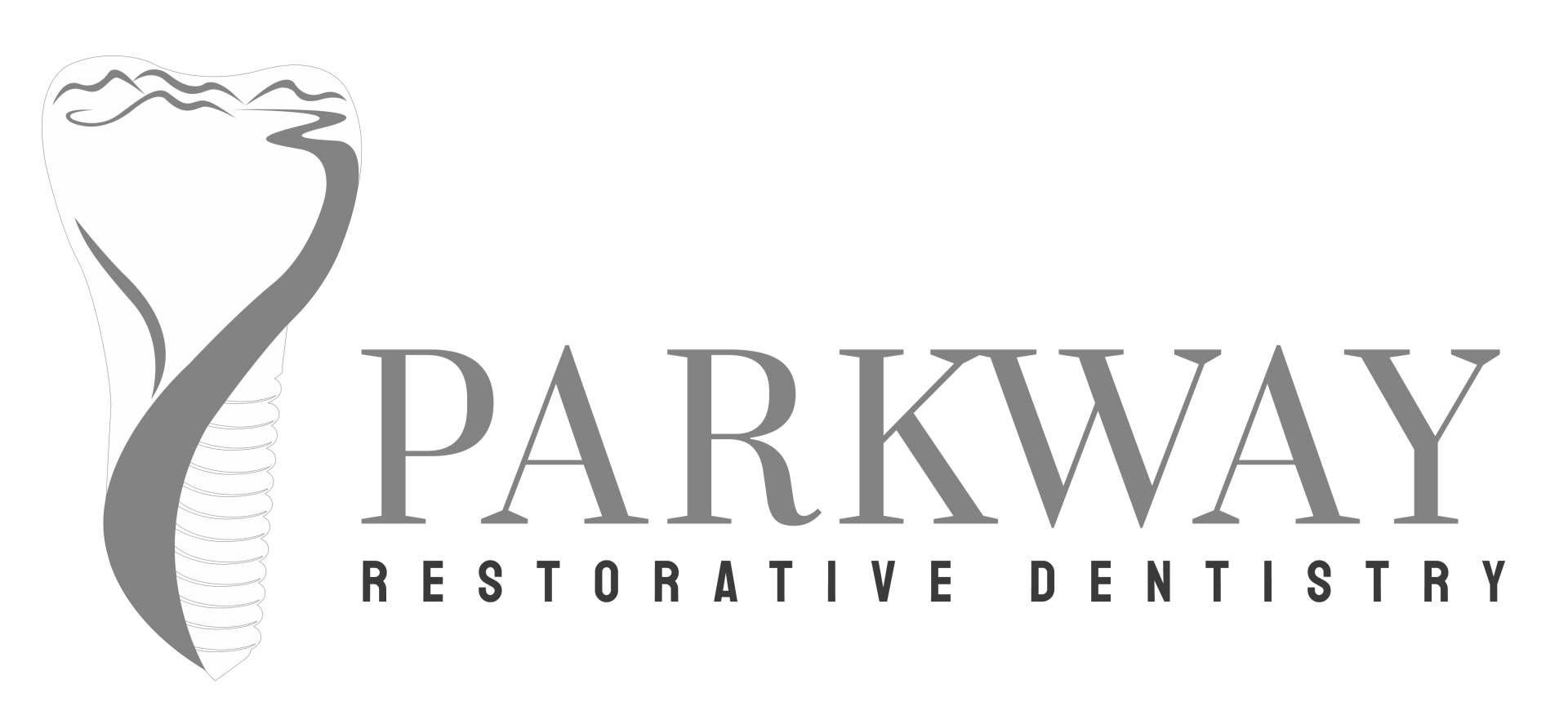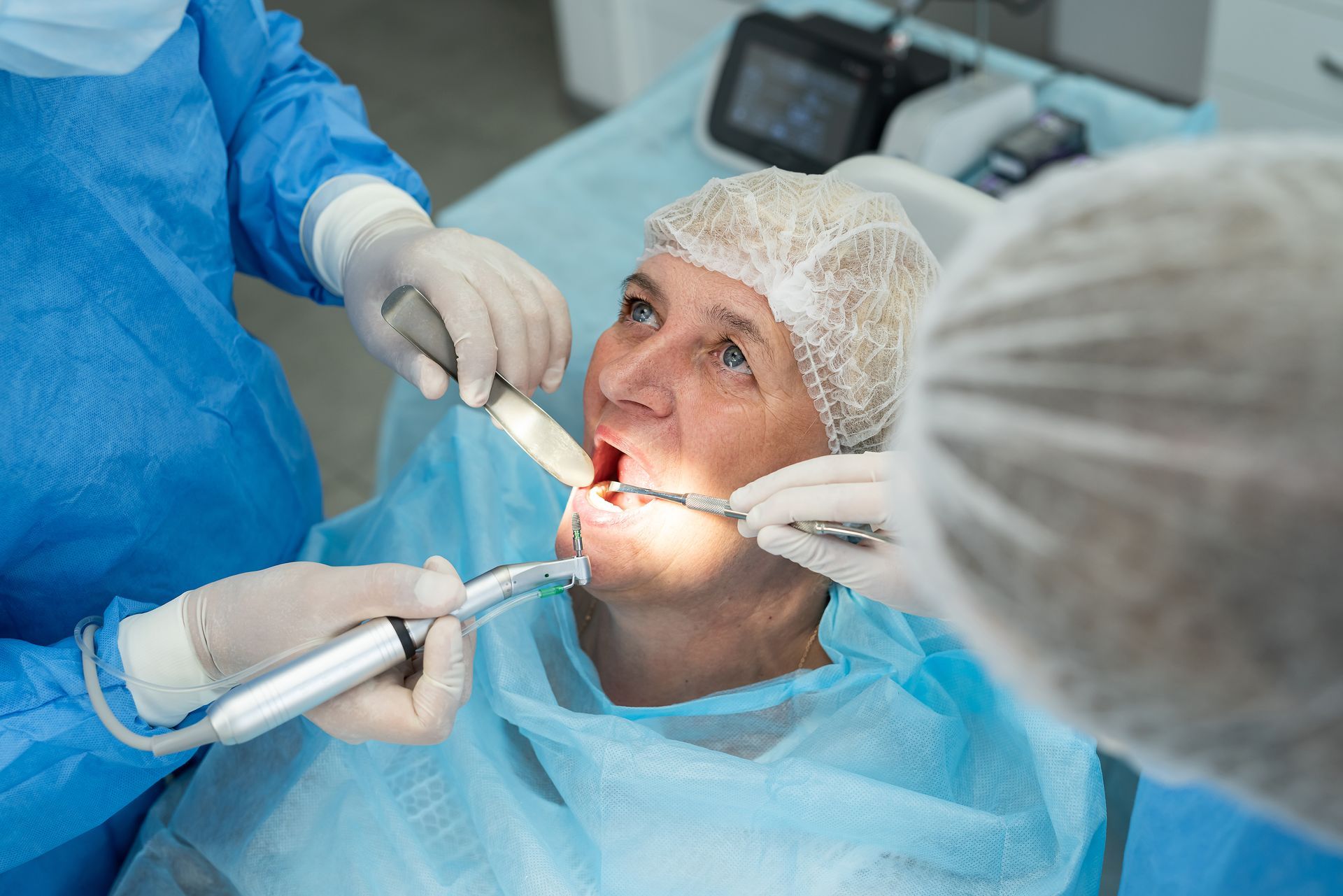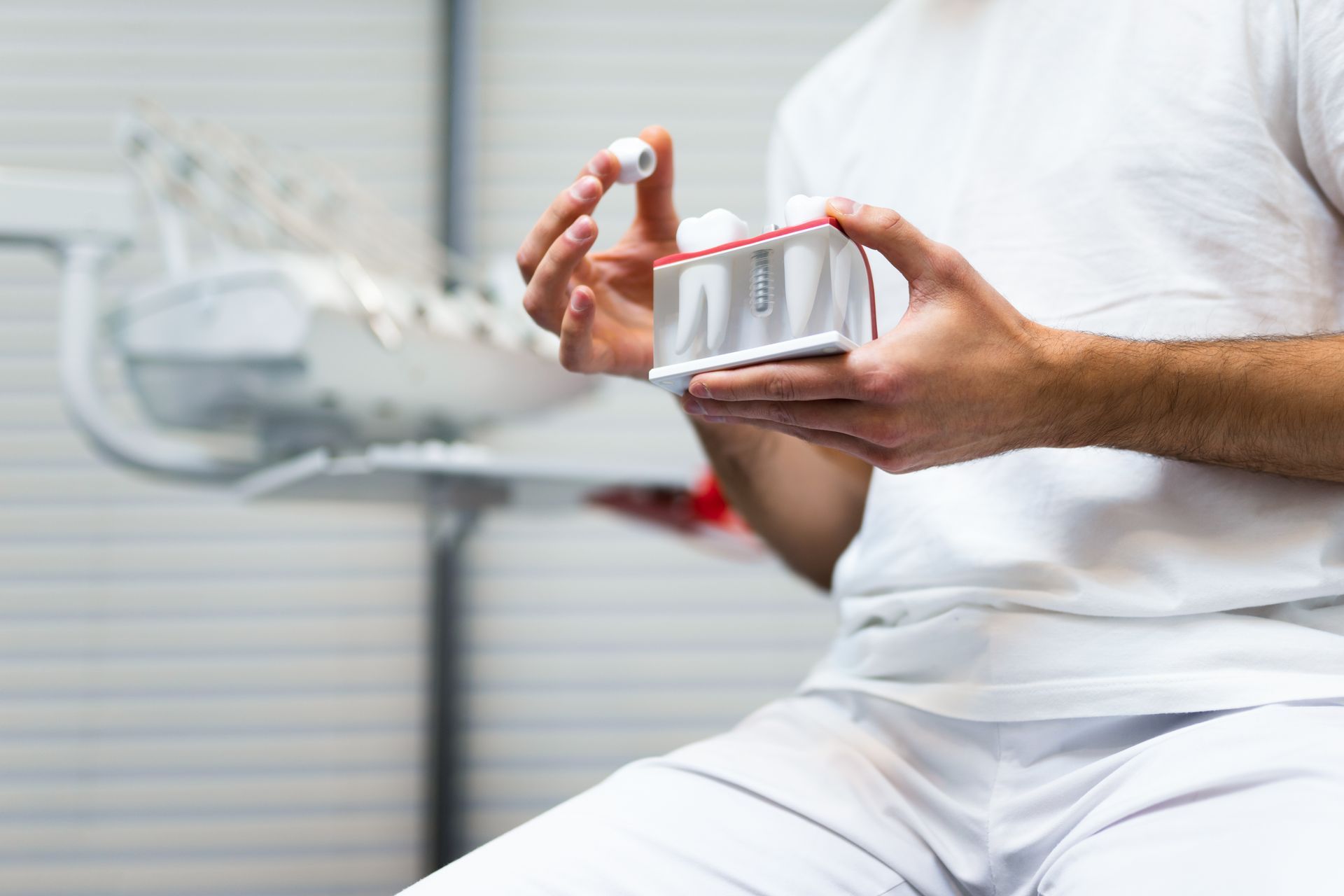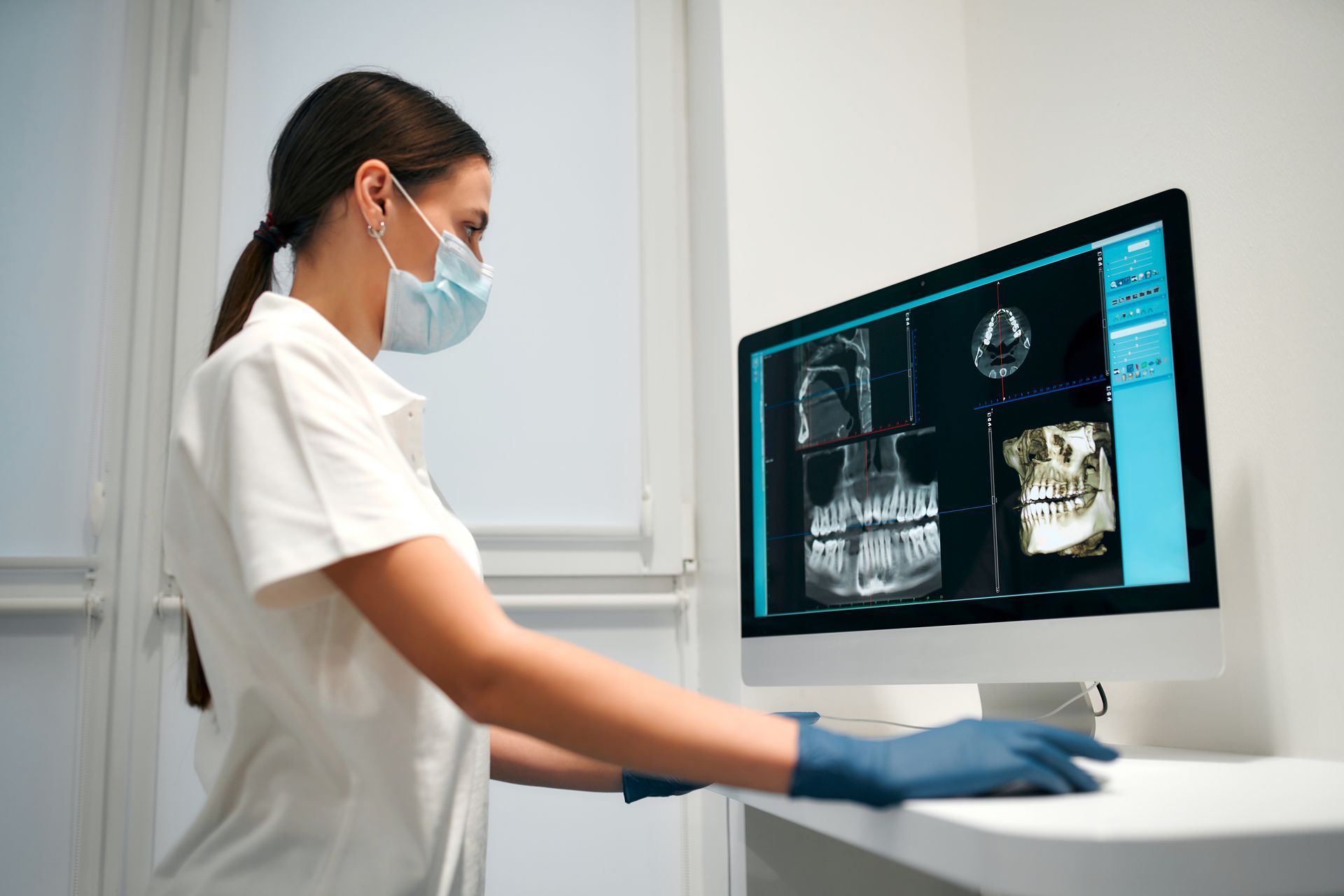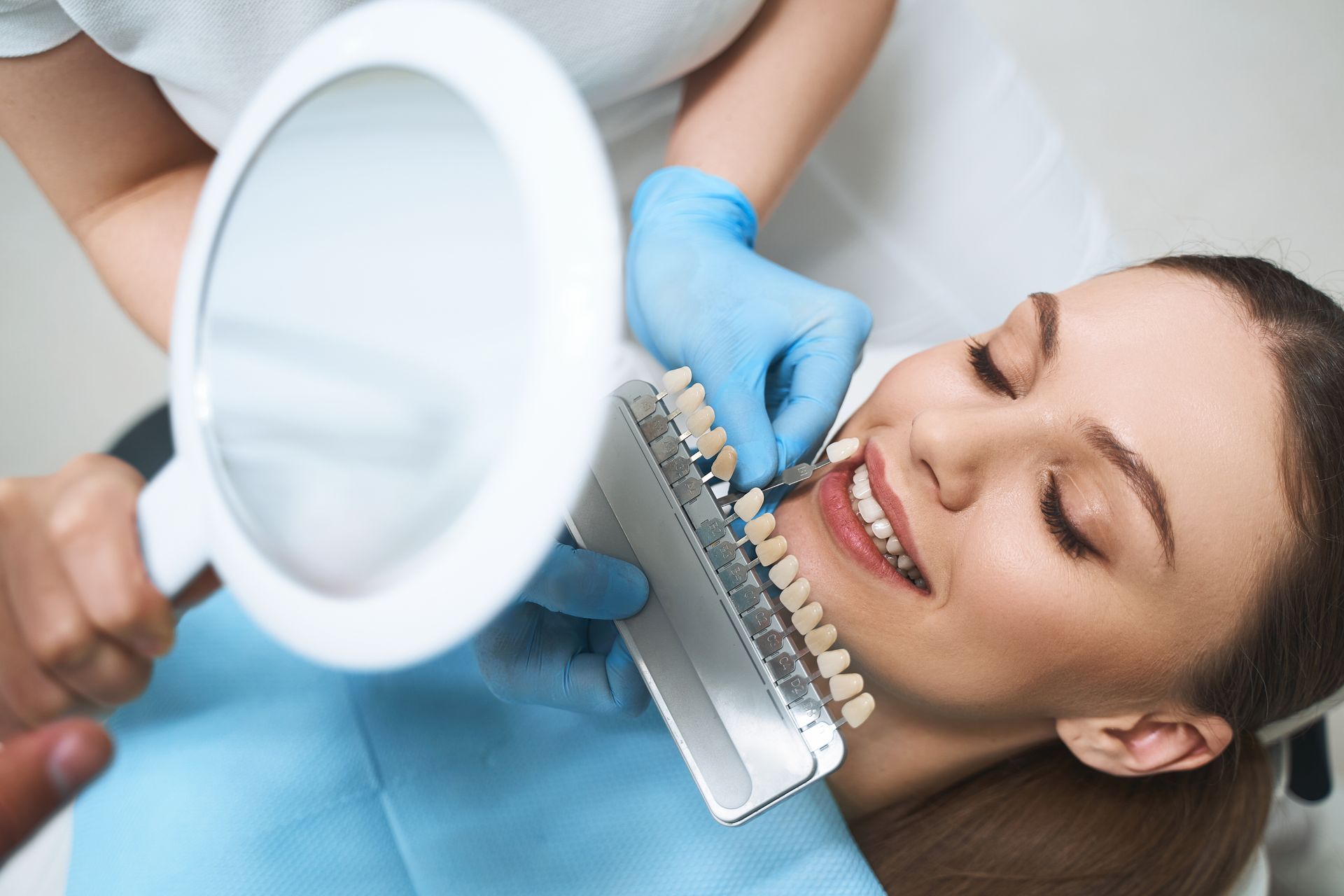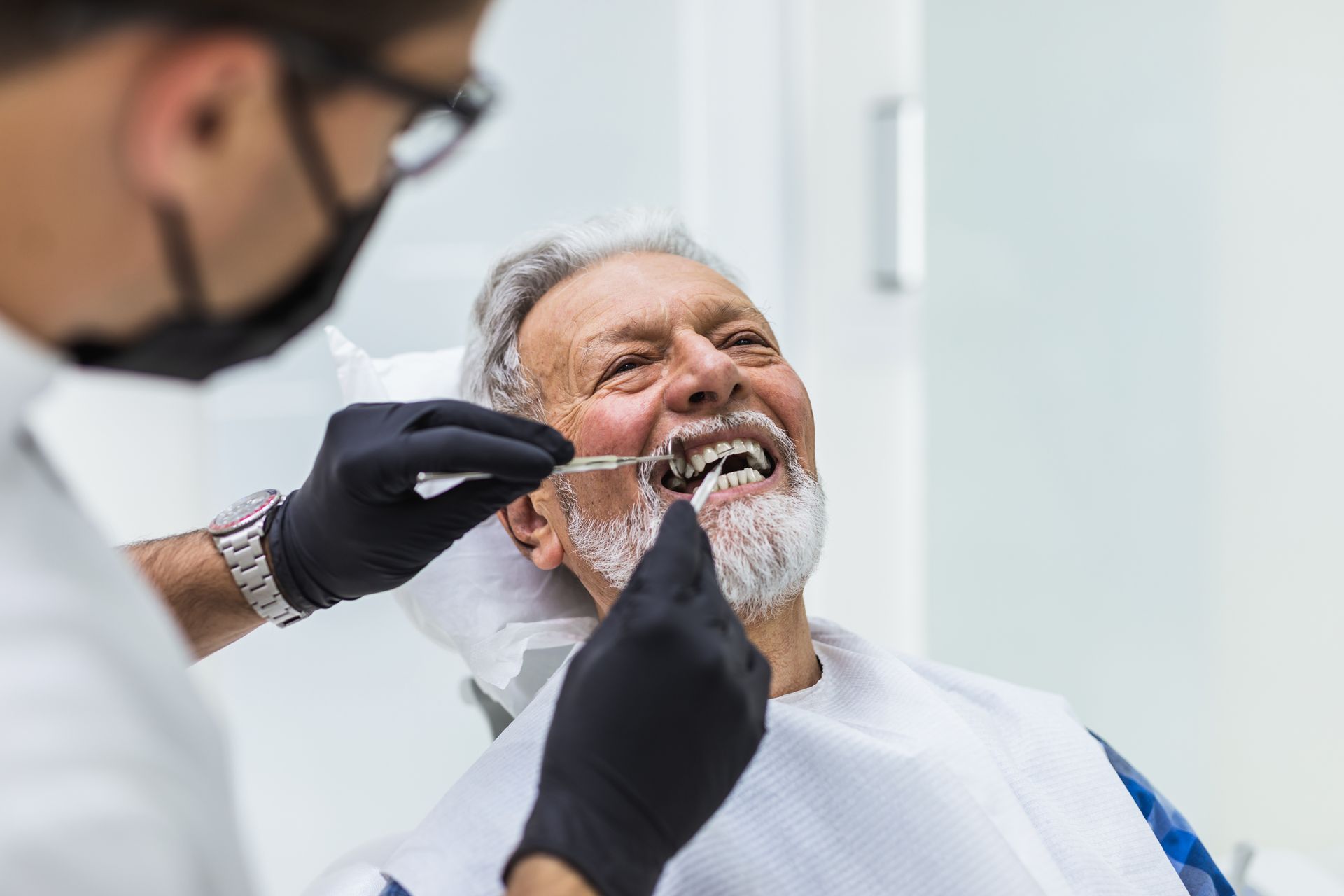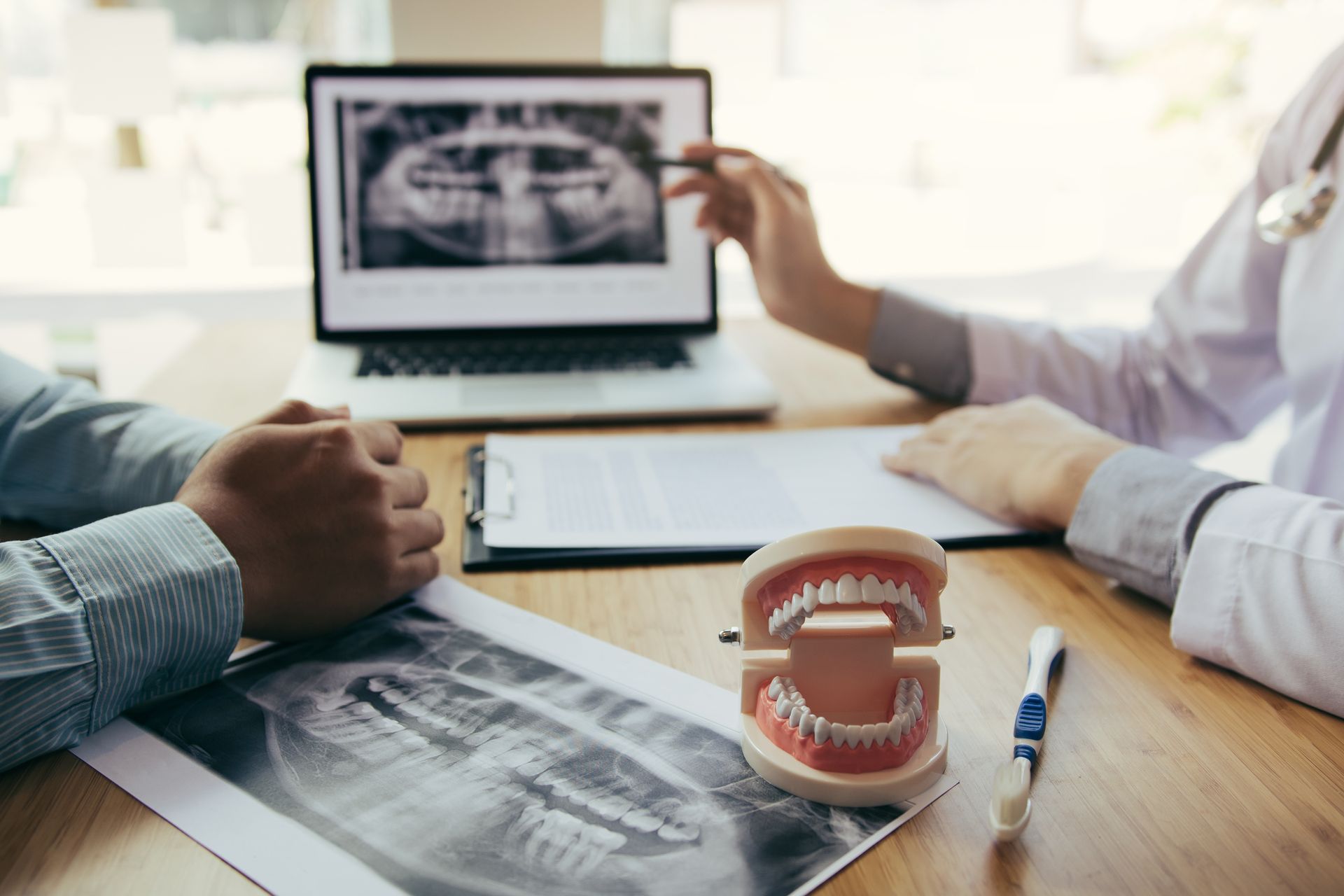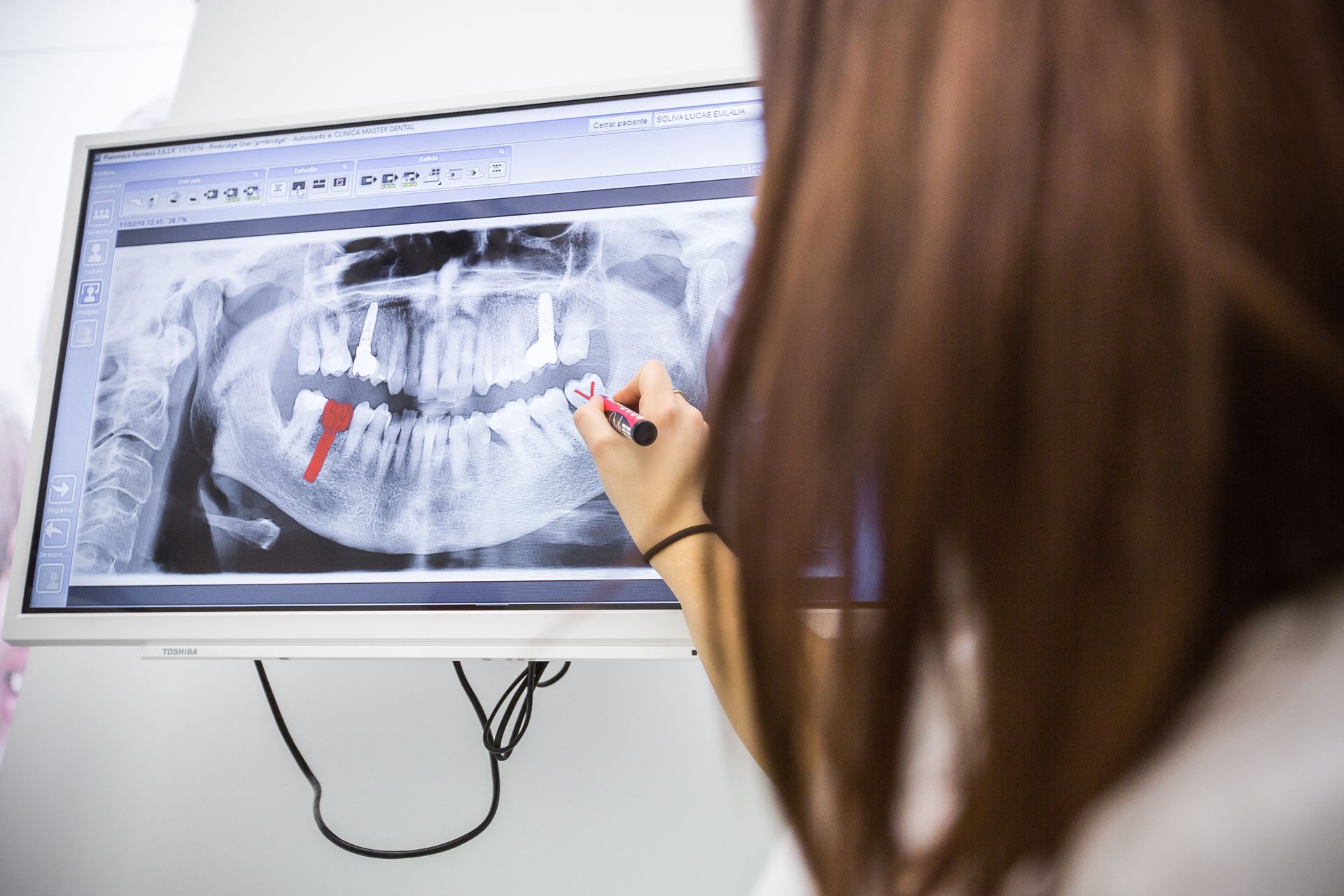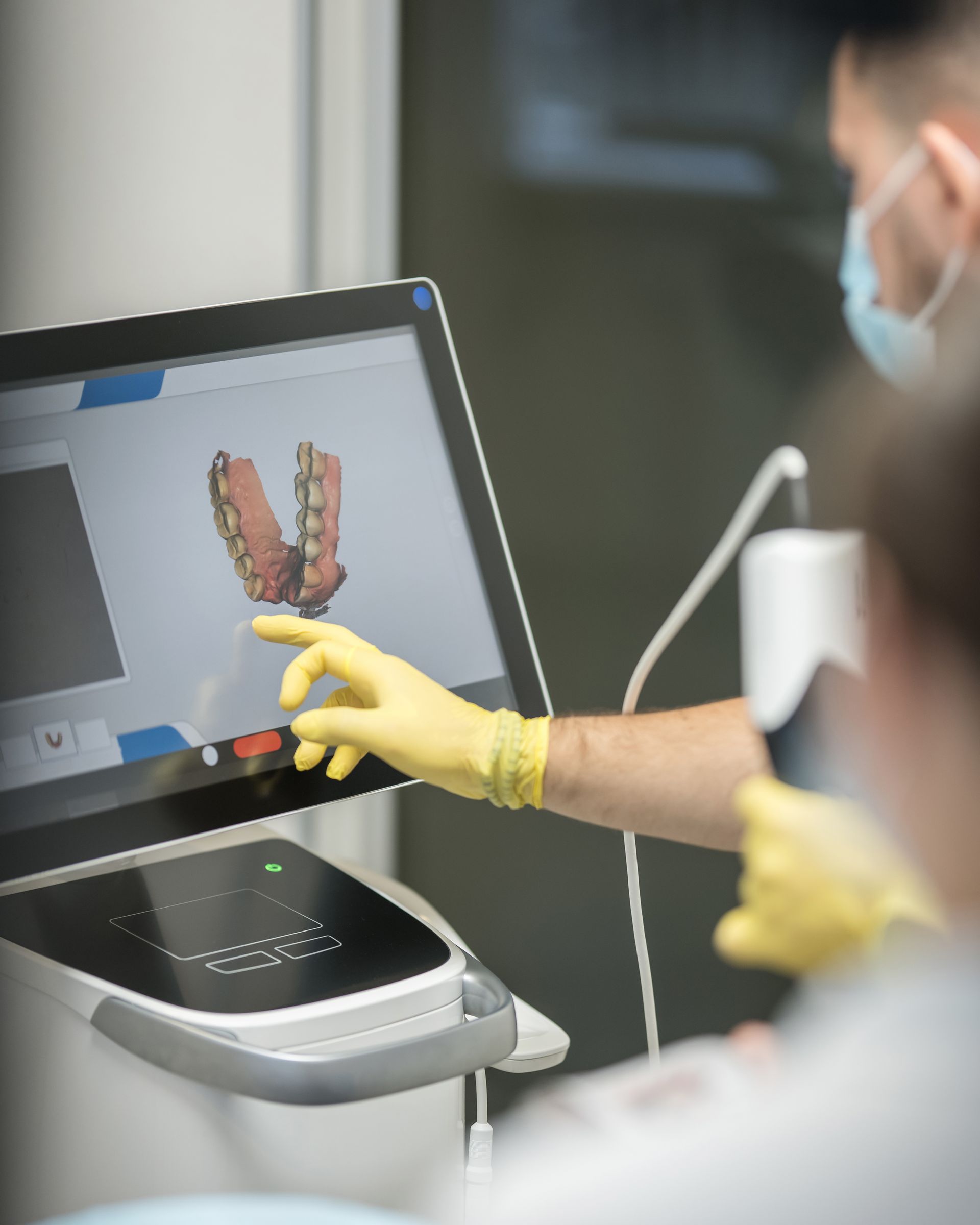Do Dental Implants Hurt? The Truth About Pain and Recovery
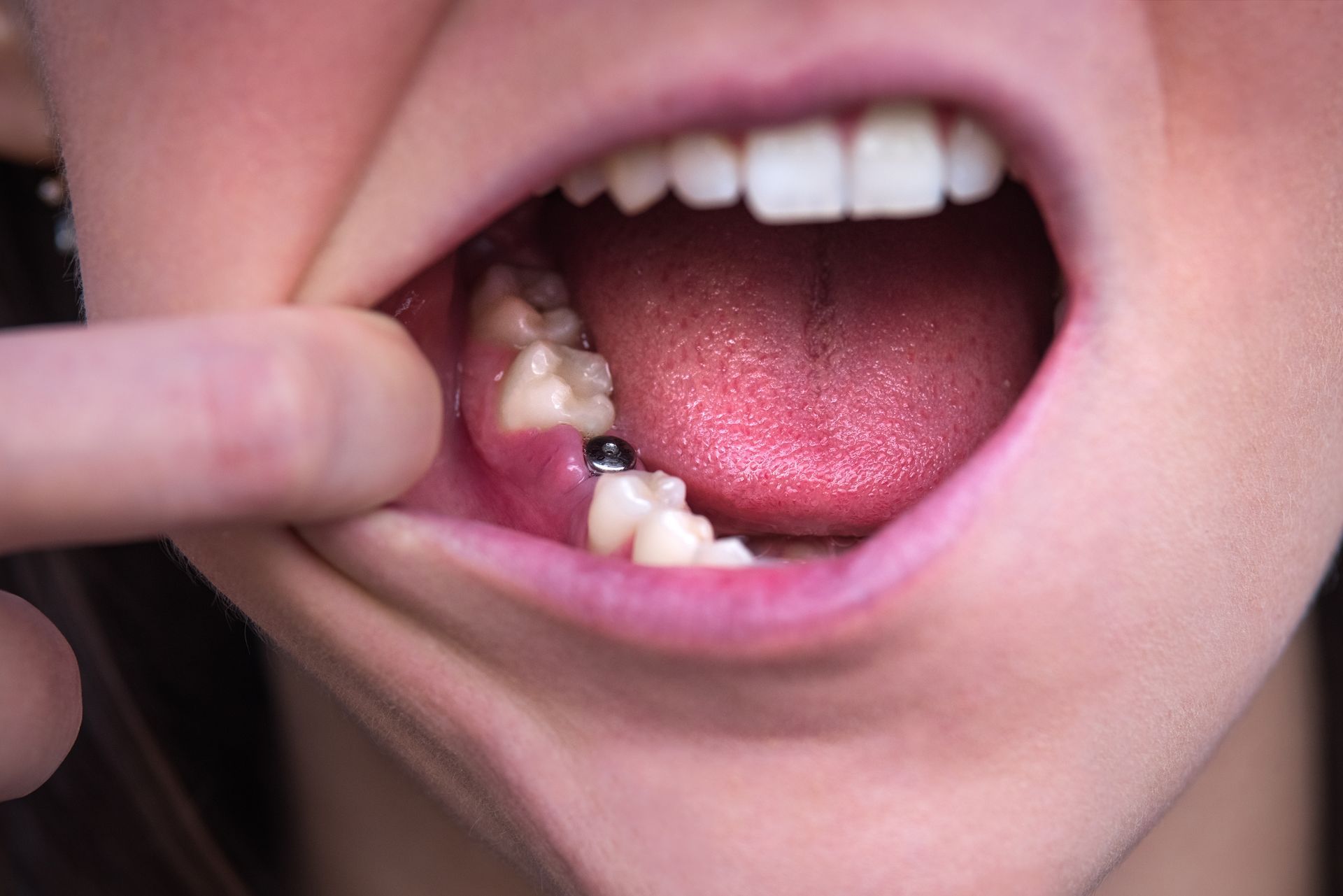
One of the biggest questions people have before getting dental implants is, "Will it hurt?" This is completely normal. Nobody likes the idea of pain, especially when it comes to dental treatment.
The good news is that most patients are pleasantly surprised at how comfortable the
dental implant process is. With modern
anesthesia, sedation options, and careful planning, getting
implants is often easier than people expect. Let's break it down so you know exactly what to expect during and after the procedure.
The Procedure: What You'll Feel (and What You Won't)
When you get a dental implant, the actual placement is done under local anesthesia. This means the area is completely numb. You should not feel pain during the procedure. Instead, you might feel:
- Pressure where the dentist is working
- Slight vibration from dental instruments
- Some gentle movement as the implant is placed
- Sounds from the equipment (but no pain)
If you feel nervous, many dental offices - including Parkway Restorative Dentistry - offer sedation dentistry. Sedation helps you feel calm and relaxed. Some patients even nap through the entire procedure.
Most patients describe the experience as being more comfortable than they expected, and many compare it to getting a tooth extracted, but easier.
What Makes Modern Implant Surgery More Comfortable:
- Advanced anesthesia techniques that ensure complete numbness
- 3D planning that makes surgery faster and more precise
- Minimally invasive techniques that reduce trauma to tissues
- Sedation options for anxious patients
- Experienced surgeons who work efficiently and gently
After the Procedure: What Recovery Is Really Like
It is normal to have some soreness once the anesthesia wears off, but this is usually mild. Think of it like the soreness you feel after dental work or a pulled tooth.
Common recovery symptoms may include:
- Tenderness around the implant site
- Mild swelling of the gums or cheeks
- Slight bruising in some cases (more common with multiple implants)
- Small amount of bleeding for the first day
- Feeling tired from the procedure and healing process
These symptoms usually improve within a few days. Most patients feel back to normal in less than a week. Many people are surprised that they feel well enough to go to work the next day.
Day-by-Day Recovery Timeline:
Day 1: Some bleeding and swelling. Take it easy and follow post-op instructions.
Days 2-3: Swelling may peak, then start to go down. Soreness is usually manageable.
Days 4-7: Most discomfort fades. You can usually return to normal activities.
Week 2: Follow-up appointment. Most healing is complete on the surface.
Months 2-6: Implant continues to integrate with bone (you will not feel this process).
How to Manage Pain After Dental Implants
Your dentist will give you detailed instructions for aftercare. To make your recovery more comfortable:
Pain Management Strategies:
Take medication as directed. Most patients only need over-the-counter pain relievers like ibuprofen or acetaminophen. Ibuprofen is especially helpful because it also reduces swelling.
Use an ice pack. Placing an ice pack on your cheek for 15-20 minutes at a time can reduce swelling. Do this for the first 24-48 hours.
Stick to soft foods. Yogurt, smoothies, soups, scrambled eggs, and mashed potatoes are gentle on your healing mouth. Avoid anything hot, spicy, or crunchy for the first few days.
Rest. Give your body time to heal. Avoid heavy exercise for the first couple of days, but gentle walking is fine.
Keep your mouth clean. Gentle rinsing with warm salt water can soothe sore gums and help healing. Avoid vigorous swishing.
Sleep with your head elevated. This can help reduce swelling overnight.
What to Avoid During Recovery:
- Smoking or tobacco use (seriously affects healing)
- Drinking through straws (can dislodge blood clots)
- Hot liquids or foods for the first day
- Hard, crunchy, or sticky foods
- Alcohol (can interfere with healing and medications)
- Vigorous exercise for 48-72 hours
How Long Does Recovery Take?
The initial healing period is usually just a few days. You may be able to return to work the next day, depending on your comfort level and the type of work you do.
However, the implant itself takes a few months to fully fuse with your jawbone. This process is called osseointegration. During this time, you can go about your daily life as usual. You will not feel the implant integrating - it happens gradually and painlessly.
Recovery Phases:
Immediate healing (1-2 weeks): Gums heal and any discomfort fades
Osseointegration (2-6 months): Implant bonds with bone (no pain during this phase)
Final restoration (1-2 weeks): Crown or bridge is placed on the healed implant.
Once the implant is secure, your dentist will place the
crown,
bridge, or
denture on top. This final step is usually very comfortable since no surgery is involved.
Comparing Pain: Implants vs. Other Dental Treatments
If you are trying to picture what implants feel like, it helps to compare them to other dental procedures:
Pain Level Comparisons:
Tooth extraction: Many patients say implants are easier and less painful than having a tooth pulled, especially a difficult extraction.
Root canal: Implants usually cause less discomfort afterward than root canal treatment.
Wisdom tooth removal: Much less painful than removing impacted wisdom teeth.
Dentures: Dentures are not painful to place, but they can cause long-term sore spots and discomfort. Implants, once healed, usually feel better day-to-day.
Deep cleaning: Similar discomfort level to a dental deep cleaning, but implants heal faster.
Most patients rate implant pain as a 3-4 out of 10 during recovery, with many saying it was much easier than they expected.
Factors That Affect Your Comfort Level
Several things can influence how comfortable your implant experience is:
Things That Make Recovery Easier:
- Good overall health
- Non-smoking status
- Following post-operative instructions
- Taking medications as prescribed
- Getting adequate rest
- Having realistic expectations
Things That May Increase Discomfort:
- Smoking (significantly affects healing)
- Multiple implants placed at once
- Need for bone grafting or extractions
- Certain medications that affect healing
- Not following aftercare instructions
When to Call Your Dentist
While some discomfort is normal, call your dentist if you experience:
- Severe pain that gets worse instead of better
- Heavy bleeding that does not stop
- Signs of infection (fever, pus, severe swelling)
- Numbness that lasts more than a few hours
- Implant feels loose
- Severe swelling that interferes with swallowing
Most patients never experience these issues, but it is good to know when to seek help.
Tips for a Smooth Recovery
If you want to make healing as easy as possible, follow these tips:
Before Your Procedure:
- Get a good night's sleep
- Eat a healthy meal beforehand (you may not feel like eating much after)
- Arrange for someone to drive you home if you have sedation
- Fill any prescriptions ahead of time
- Stock up on soft foods
After Your Procedure:
- Take it easy the first day and rest
- Avoid hard or crunchy foods until you feel comfortable
- Do not smoke or use straws, as they can interfere with healing
- Keep your follow-up appointments so your dentist can check progress
- Follow your dentist's instructions carefully - they are designed to make healing quicker and easier
Managing Anxiety About Pain
If you are worried about pain, here are some strategies:
- Ask about sedation options - oral sedation, nitrous oxide, or IV sedation can make the experience much more comfortable
- Discuss your concerns with your dentist - they can explain exactly what you will feel
- Consider starting with one implant if you need several, so you know what to expect
- Talk to other patients who have had implants - most will tell you it was easier than expected
- Focus on the benefits - the temporary discomfort leads to years of improved function and confidence
The Bottom Line: Do Implants Hurt?
For most patients, dental implants cause only mild discomfort and are much easier than they feared. The benefits - a natural-looking, strong, and lasting smile - far outweigh a few days of soreness.
Here is what most patients tell us after their implant treatment:
- "It was not as bad as I thought it would be"
- "I wish I had done this sooner"
- "The recovery was easier than when I had my tooth pulled"
- "I was back to eating normally within a week"
The key is having realistic expectations and following your aftercare instructions. Most patients find that any discomfort is manageable and short-lived, while the benefits of implants last for decades.
FAQs
How painful is the dental implant procedure itself?
With anesthesia and sedation, you should not feel pain during the procedure. You may feel pressure and vibration, but no sharp pain.
How long will I feel sore after getting implants?
Most patients feel mild soreness for 2-3 days, but many return to work the next day. Everyone heals differently, but severe pain is rare.
What pain medicine will I need?
Over-the-counter options like ibuprofen are usually enough. Your dentist may prescribe something stronger if needed, especially for multiple implants.
What if I am really nervous about the pain?
Ask about sedation dentistry. It can make the entire process easier and less stressful. Many patients with dental anxiety do very well with sedation.
Can I take my regular medications before the procedure?
Usually yes, but tell your dentist about all medications you take. Some may need to be adjusted before surgery.
What if I have a low pain tolerance?
Let your dentist know about your concerns. They can adjust your treatment plan and pain management to keep you comfortable.
How does age affect recovery?
Younger patients often heal faster, but many older patients do very well with implants too. Age alone is not a barrier to comfortable recovery.
Ready to Take the Next Step?
Are you holding back from getting dental implants because you are worried about pain? Let our team at Parkway Restorative Dentistry in Asheville put your mind at ease. Schedule a consultation today and discover how we make implant treatment comfortable and stress-free.
During your consultation, we will discuss your concerns about pain and explain exactly what you can expect. We offer sedation options and will create a personalized comfort plan tailored to your needs. Do not let fear of pain prevent you from getting the smile you deserve.
Disclaimer
This blog is for informational purposes only and should not be taken as dental or medical advice. Every patient's needs are unique. For guidance about your specific situation, please consult a licensed dental professional.
